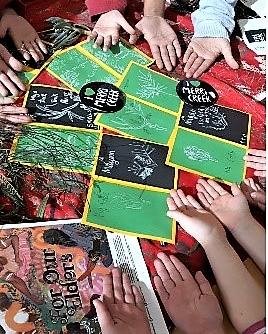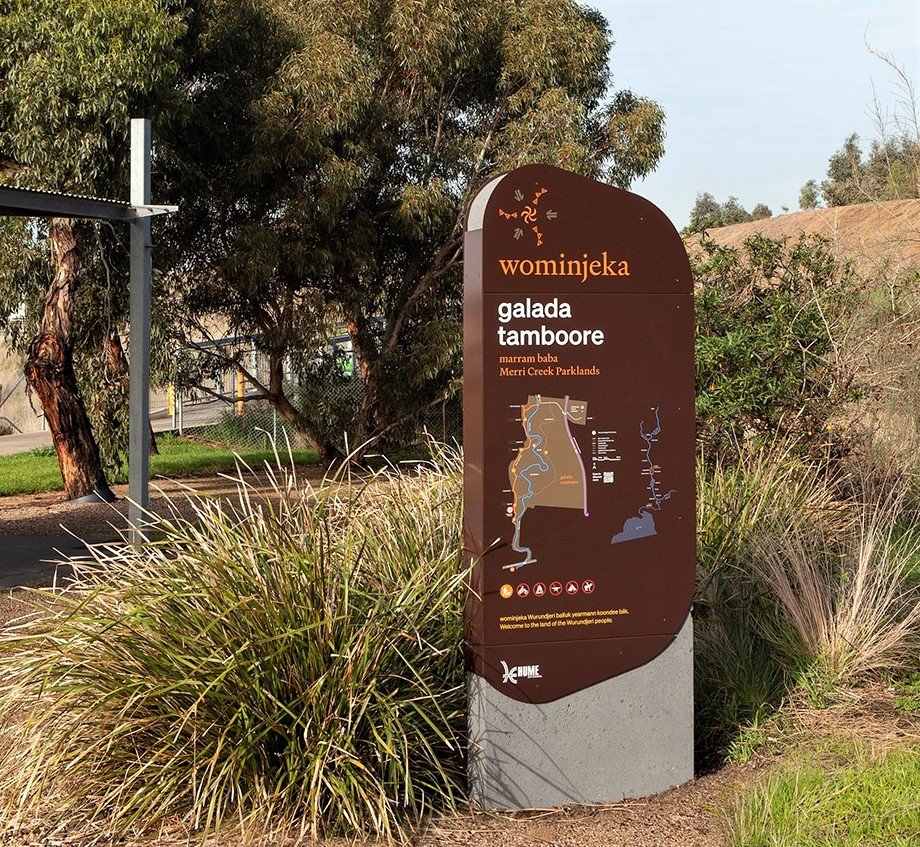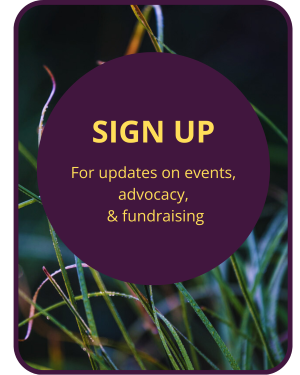
 MCMC's Executive Officer, Bernadette Thomas, recently participated in two water network events:
MCMC's Executive Officer, Bernadette Thomas, recently participated in two water network events:
Melbourne Biodiversity Network: This series of workshops was launched by the University of Melbourne and design studio, OFFICE to create a network of public spaces forming a bio-diverse web of ecological corridors throughout Melbourne. MCMC shared information about our history, strong community involvement, engagement with the diverse Merri community, partnering with the Wurundjeri Woi-wurrung, and our ideas for how collaboration works well. The Network's aim is to link these underutilised spaces with existing corridors, like Merri Creek, and so improve biodiversity within our city.
 Working with Water: This event series, hosted by Regeneration Projects and La Loyka, involved five workshops focused on how different waterway organisations worked to address climate change, biodiversity, and habitat loss. MCMC joined Kooyongkoot Alliance, and again highlighted the long history of community involvement, participation, and leadership in bringing Merri Creek back to life. The focus was on the importance of connection to nature, learning from people using the creek and those working to restore it, and the interconnections between urban biodiversity, ecosystem restoration, and community wellbeing – all core to MCMC’s vision. Download a summary of this event.
Working with Water: This event series, hosted by Regeneration Projects and La Loyka, involved five workshops focused on how different waterway organisations worked to address climate change, biodiversity, and habitat loss. MCMC joined Kooyongkoot Alliance, and again highlighted the long history of community involvement, participation, and leadership in bringing Merri Creek back to life. The focus was on the importance of connection to nature, learning from people using the creek and those working to restore it, and the interconnections between urban biodiversity, ecosystem restoration, and community wellbeing – all core to MCMC’s vision. Download a summary of this event.
 We’re continuing to strengthen our outreach with early years communities in Whittlesea and Hume. We work with educators to explore opportunities that are local, respect indigenous biodiversity and leave no footprint. When we support educators to visit nearby natural areas with young children, we suggest how to think about Bush Kinder and Nature Play differently.
We’re continuing to strengthen our outreach with early years communities in Whittlesea and Hume. We work with educators to explore opportunities that are local, respect indigenous biodiversity and leave no footprint. When we support educators to visit nearby natural areas with young children, we suggest how to think about Bush Kinder and Nature Play differently.
Early years learning programs that take children for walks and exploration have been shown to have strong positive health impacts.
MCMC’s A Little Nature Play program introduces early years educators to walkable beautiful places which you can enjoy with children and leave no footprint.
Our A Little Nature Play program provides opportunities which value children’s social and physical wellbeing. After we get together and explore ideas and places with staff, our goal is to take children out together and encourage long-term independent connections to nearby places.
 To commemorate National Threatened Species Day, the Merri Paddle, a subgroup of Friends of Merri Creek, recently hosted a Roundtable of Stakeholders to discuss ways to bring platypus back to the Merri. Participants from member councils (Cities of Hume, Whittlesea, Merri-bek and Yarra) and organisations, including Melbourne Water, the EPA, DEECA & AQUEST (RMIT), presented and participated in discussions on practical solutions for improving Merri Creek at specific sites to facilitate an increase in platypus numbers on the Merri. Besides Merri Paddle and Friends of Merri Creek, the community was represented by Rotary, Bacchus Marsh Platypus Alliance and MCMC. The event was a positive, collaborative and pragmatic approach that we hope will solidify and create new partnerships in order to reduce pollution levels in the Merri.
To commemorate National Threatened Species Day, the Merri Paddle, a subgroup of Friends of Merri Creek, recently hosted a Roundtable of Stakeholders to discuss ways to bring platypus back to the Merri. Participants from member councils (Cities of Hume, Whittlesea, Merri-bek and Yarra) and organisations, including Melbourne Water, the EPA, DEECA & AQUEST (RMIT), presented and participated in discussions on practical solutions for improving Merri Creek at specific sites to facilitate an increase in platypus numbers on the Merri. Besides Merri Paddle and Friends of Merri Creek, the community was represented by Rotary, Bacchus Marsh Platypus Alliance and MCMC. The event was a positive, collaborative and pragmatic approach that we hope will solidify and create new partnerships in order to reduce pollution levels in the Merri.
To learn more about the Merri Paddle group go to: https://www.friendsofmerricreek.org.au/merri-paddle
Sincere thanks to the funders of the event: Melbourne Water, Friends of Merri Creek, MCMC and the City of Merri-bek with support from DEECA and the City of Darebin.
 In July 2023, we were amazed and very touched when our 2023 Merri Creek Environment Fund appeal received a $100 donation from Merri Creek itself!! It came to MCMC with a letter addressed to the creek from Clifton Hill resident, Bruce Lavender, apologising for the bad treatment over the years and the heaps of rubbish that it has had to put up with, but noting the many attempts to improve it. The $100 note was one of the many things Bruce and his partner found on one of their clean-ups.
In July 2023, we were amazed and very touched when our 2023 Merri Creek Environment Fund appeal received a $100 donation from Merri Creek itself!! It came to MCMC with a letter addressed to the creek from Clifton Hill resident, Bruce Lavender, apologising for the bad treatment over the years and the heaps of rubbish that it has had to put up with, but noting the many attempts to improve it. The $100 note was one of the many things Bruce and his partner found on one of their clean-ups.
See the full letter below.
 In July 2023, MCMC received a fresh batch of 180 Silver Banksia seedlings (Banksia marginata, tree form) from the Friends of the Forgotten Woodlands, a volunteer group who have been working hard to rebuild the Banksia, Bursaria and Sheoak woodlands that were once a keystone in the ecology of the Victorian Volcanic Plains. Together with 50 seedlings grown by VINC, these plants will be added into our Tree Banksia Orchard which was established in Fawkner last year with help from many volunteers and support from the Merri Creek Environment Fund. The Orchard currently brings together genetic material from 10 different Silver Banksia populations across the volcanic plains, alongside material from three populations growing in locations whose current climate matches Melbourne’s future modelled climate. We will add provenances from Clarkfield and Eynesbury to the mix, bringing the number of volcanic plains populations represented in the Orchard to 12. A successful planting with LGBTIQ Friends of Bababi Djinanang was held on Saturday 12th August.
In July 2023, MCMC received a fresh batch of 180 Silver Banksia seedlings (Banksia marginata, tree form) from the Friends of the Forgotten Woodlands, a volunteer group who have been working hard to rebuild the Banksia, Bursaria and Sheoak woodlands that were once a keystone in the ecology of the Victorian Volcanic Plains. Together with 50 seedlings grown by VINC, these plants will be added into our Tree Banksia Orchard which was established in Fawkner last year with help from many volunteers and support from the Merri Creek Environment Fund. The Orchard currently brings together genetic material from 10 different Silver Banksia populations across the volcanic plains, alongside material from three populations growing in locations whose current climate matches Melbourne’s future modelled climate. We will add provenances from Clarkfield and Eynesbury to the mix, bringing the number of volcanic plains populations represented in the Orchard to 12. A successful planting with LGBTIQ Friends of Bababi Djinanang was held on Saturday 12th August.
 MCMC supports educators, from early years to tertiary level, to teach Indigenous perspectives with local biodiversity references and stories. In 2022 we led the first Community of Practice gathering in Darebin to situate Merri Creek’s catchment, especially our waterways and biodiversity and to support educator’s local connection to Wurundjeri Woi-wurrung Country, seasons, and language.
MCMC supports educators, from early years to tertiary level, to teach Indigenous perspectives with local biodiversity references and stories. In 2022 we led the first Community of Practice gathering in Darebin to situate Merri Creek’s catchment, especially our waterways and biodiversity and to support educator’s local connection to Wurundjeri Woi-wurrung Country, seasons, and language.
In our aim to connect educators to Wurundjeri Woi-wurrung Country, and as non-Indigenous educators, we follow advice which asks us not to tell First Nations People's creation stories. Instead, we are able to connect interculturally with stories about different concepts of seasons or material stories such as those about uses of indigenous plants, various plant language names and signs around us such as about the name ‘Merri Creek.’ Few people comprehend this as a bilingual phrase: Merri (Woi-wurrung) and Creek (English).
In July 2023 we were joined by people from 17 organisations at our second gathering in NAIDOC Week. We spent time on our ecoliteracy by drawing indigenous plants and noting their Wurundjeri Woi-wurrung language names, where they are known.
A key highlight was a presentation by the principal of Northcote High School, Chris Jones, about decolonising the school’s library - see The Age article about this.
 MCMC supported Yarra and Merri-bek Libraries’ vacation programs with very well-attended activities that highlighted NAIDOC Week (2023) and local indigenous plants. Together we thought about Wurundjeri Woi-wurrung Country, language, seasons and plants using a variety of resources. Kids joined in very enthusiastically and produced many carefully produced booklets illustrated with their own botanic drawings.
MCMC supported Yarra and Merri-bek Libraries’ vacation programs with very well-attended activities that highlighted NAIDOC Week (2023) and local indigenous plants. Together we thought about Wurundjeri Woi-wurrung Country, language, seasons and plants using a variety of resources. Kids joined in very enthusiastically and produced many carefully produced booklets illustrated with their own botanic drawings.
We met in the Woi-wurrung season waring which spans April to July, Melbourne’s coldest months which correspond to winter. The indigenous plants we worked with in NAIDOC Week reflected the season, especially in relation to the lack of new flowers which occurs in later stages depending on the plant. We used The Plants of Coranderrk as a guide to plant names in Woi-wurring.
The indigenous plants we spent time becoming familiar with by touching, sniffing and drawing, included bowat (Poa labillardierei, Common Tussock-grass), garawun (Lomandra longifolia, Spiny-headed Mat-rush), galertiwan (Pomaderis aspera, Hazel Pomaderris) and muyan (Acacia dealbata, Silver wattle).
 Striking new interpretative and way-finding signs were installed in July 2023 in parts of marram baba Merri Creek Parklands, many at Galada Tamboore, an area of public parkland on the Merri Creek north of the Ring Rd. With permission from Wurundjeri Woi-wurrurng Elders, the signs include a welcome in Woi-wurrung and an arresting logo designed by Lewis Wandin-Burstall. Four of the signs include text provided by Wurundjeri Elder, Aunty Doreen Garvey-Wandin.
Striking new interpretative and way-finding signs were installed in July 2023 in parts of marram baba Merri Creek Parklands, many at Galada Tamboore, an area of public parkland on the Merri Creek north of the Ring Rd. With permission from Wurundjeri Woi-wurrurng Elders, the signs include a welcome in Woi-wurrung and an arresting logo designed by Lewis Wandin-Burstall. Four of the signs include text provided by Wurundjeri Elder, Aunty Doreen Garvey-Wandin.
The project was funded by the State Government and led by Merri Creek Management Committee on behalf of the marram baba Parkland Partners - the Cities of Hume and Whittlesea, Mitchell Shire, Melbourne Water, Yarra Valley Water, Parks Victoria and the Wurundjeri Woi-wurrung Cultural Heritage Aboriginal Corporation.
 Our support of early years communities doing Bush Kinder and Nature Play programs in local natural areas continues to strengthen with projects funded by the Cities of Whittlesea and Hume. MCMC’s philosophy reflects both the state education requirements for early years and local government concerns about the impacts on public open spaces. Our philosophy is: Leave no footprint; Listen to children; Acknowledge Wurundjeri Country in age-appropriate ways; Respect early years educators.
Our support of early years communities doing Bush Kinder and Nature Play programs in local natural areas continues to strengthen with projects funded by the Cities of Whittlesea and Hume. MCMC’s philosophy reflects both the state education requirements for early years and local government concerns about the impacts on public open spaces. Our philosophy is: Leave no footprint; Listen to children; Acknowledge Wurundjeri Country in age-appropriate ways; Respect early years educators.
For more on the benefits of these progams, follow the read more prompt.
 A small but enthusiastic group of Year 12 Geography students from Whittlesea Secondary College joined MCMC at Merri Creek in Donnybrook to conduct WaterWatch physical chemical testing of parameters such as salinity (EC), pH, turbidity, temperature and nutrients (phosphate and ammonium).
A small but enthusiastic group of Year 12 Geography students from Whittlesea Secondary College joined MCMC at Merri Creek in Donnybrook to conduct WaterWatch physical chemical testing of parameters such as salinity (EC), pH, turbidity, temperature and nutrients (phosphate and ammonium).
This testing site is downstream of new housing developments and just upstream of the confluence of Kalkallo Creek. Both creeks and nearby dams and wetlands support an important population of endangered Growling Grass Frogs (Litoria raniformis). The students were studying the ecological impacts of urban development on waterways.
More Articles …
- New WaterWatch group in Coburg
- Cultural Connections at the Merri-Birrarung Confluence
- Frogs out in force in Whittlesea
- Restoring riparian flats and cliffs in Craigieburn & Epping
- 'A Little Nature Play' program thrives in Hume
- Welcome additions to marram baba Parklands
- VCAT refuses Harrison St development
- WaterWatch celebrates 30 years of citizen science!
- WaterWatch volunteers hone their monitoring skills
- Grassland species brochure
Page 2 of 5
Merri Events Calendar
09:30AM - 11:30AM
FoMC Coburg Lake & Surrounds - Wednesday Working Bee
09:50AM - 12:00PM
FoMC Wednesday Volunteers
10:00AM - 12:00PM
FoMC Wednesday Volunteers
09:30AM - 11:30AM
FoMC Coburg Lake & Surrounds - Friday Working Bee
09:30AM - 11:00AM
MCMC - On Wurundjeri Country for Clean Up Australia Day 2026: Caring for marram baba Merri Creek Regional Parklands at galada tamboore
10:00AM - 12:00PM
FoMC @ Merri Park - Clean Up Australia Day
11:30AM - 01:00PM
On Wurundjeri Country for Clean Up Australia Day 2026: Caring for marram baba Merri Creek Regional Parklands at galada tamboore
10:00AM - 11:30AM
Friends of Edgars Creek Thomastown Community Litter Clean-Up
01:00PM - 02:30PM
FoMC: StreamTeam Water Quality Testing
09:30AM - 11:30AM
FoMC Coburg Lake & Surrounds - Wednesday Working Bee




 Merri Creek Management Committee. 2 Lee St, East Brunswick, Victoria, Australia 3057
Merri Creek Management Committee. 2 Lee St, East Brunswick, Victoria, Australia 3057